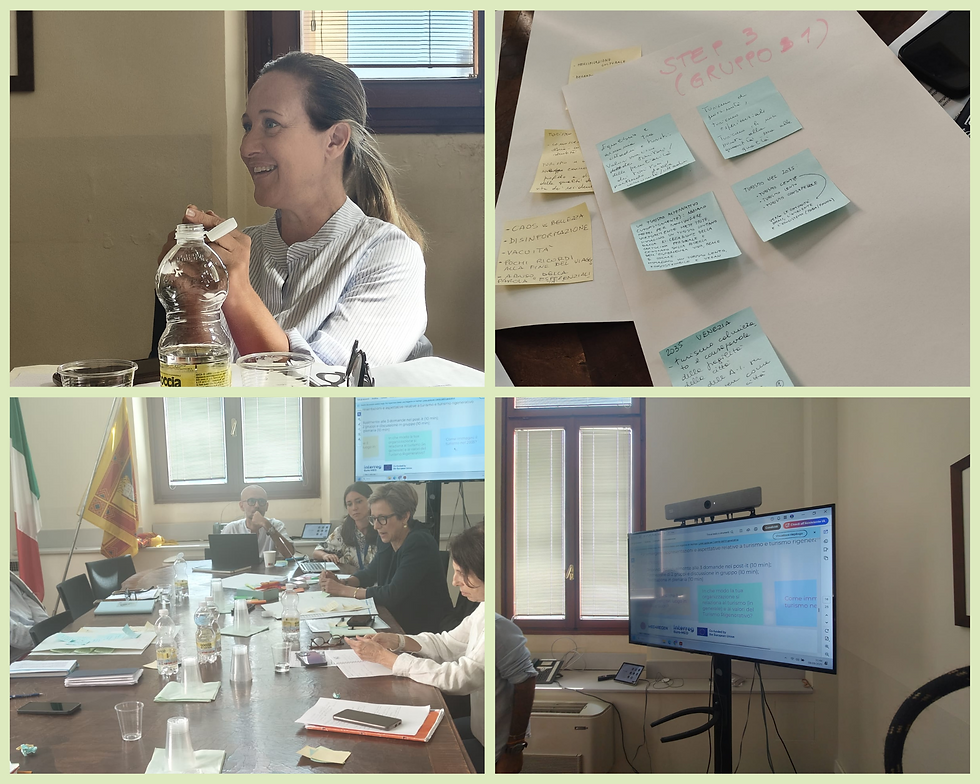VQ: a Strategic Stakeholder of the MED4REGEN Project”
- Sep 22, 2025
- 2 min read
Interreg Euro-MED MED4REGEN
Led by Veneto Region, the goal of the project is to promote a radical cultural change towards regenerative values and models of tourism, with the promotion of a novel understanding of sustainable development, and a new awareness on climate change, ecosystem preservation, and community resilience.
Museums, cultural heritage organisations and both tangible and intangible cultural resources at large can be innovative catalysts of this transformation as they can address the main tourism challenges and deliver values to communities, visitors and the tourism industry, by adopting an hyperlocal approach.
At the heart of this approach is the need to “reconnect” and “re-angage” communities, which means to create authentic connections between visitors and residents, and to actively involve local stakeholders in tourism governance, encourage citizen participation, and also empower visitors. Regenerative tourism therefore goes beyond sustainable tourism: rather than simply limiting negative impacts, it actively aims to restore and improve ecosystems, economies, and local communities.
The role of Via Querinissima
MED4REGEN has identified eight museums and cultural heritage organisations which, over the three years of the project, will test the hyperlocal approach in the project territories to bring about a culture-based transition towards regenerative tourism. Via Querinissima has been recognised as one of these drivers and therefore plays a crucial role in implementing the project in the regional area.
During 2026 and 2027, it will benefit from capacity building on the hyperlocal approach and will then lead a local pilot action, in cooperation with other cultural and tourism stakeholders, actively involving local communities.
In this initial phase, the project is focusing on mapping local cultural ecosystems, listening to the needs and expectations of local communities in relation to tourism, and identifying the main challenges that the project aims to address at regional level of Veneto.
On 8 September 2025, the second focus group centred on our itinerary was held. It was an interactive activity with cultural organisations, libraries, civil society, schools and tourist agencies that focused on perceptions and representations of tourism, obstacles and needs, and analysed the role and potential of local communities.
During the Focus Group, the crucial role of the cultural organisations that are part of the Via Querinissima network was confirmed. These include libraries and museums scattered throughout the Veneto region, which are places of culture and knowledge, rooted in the community, accessible and welcoming, but also potential hubs for cultural itineraries outside the major centres of the Region.

In a virtuous process that “re-connects” and “re-engages” both tourists and residents, and that raises awareness of regenerative tourism, these places can become destinations for visitors to discover novel and less-known stories about Venice and the Veneto region. They have the potential to attract visitors away from the main tourist centers, and engage them in authentic cultural and human experiences in dialogue with local communities, who can rediscover themselves with a renewed role in their own territory.

Comments